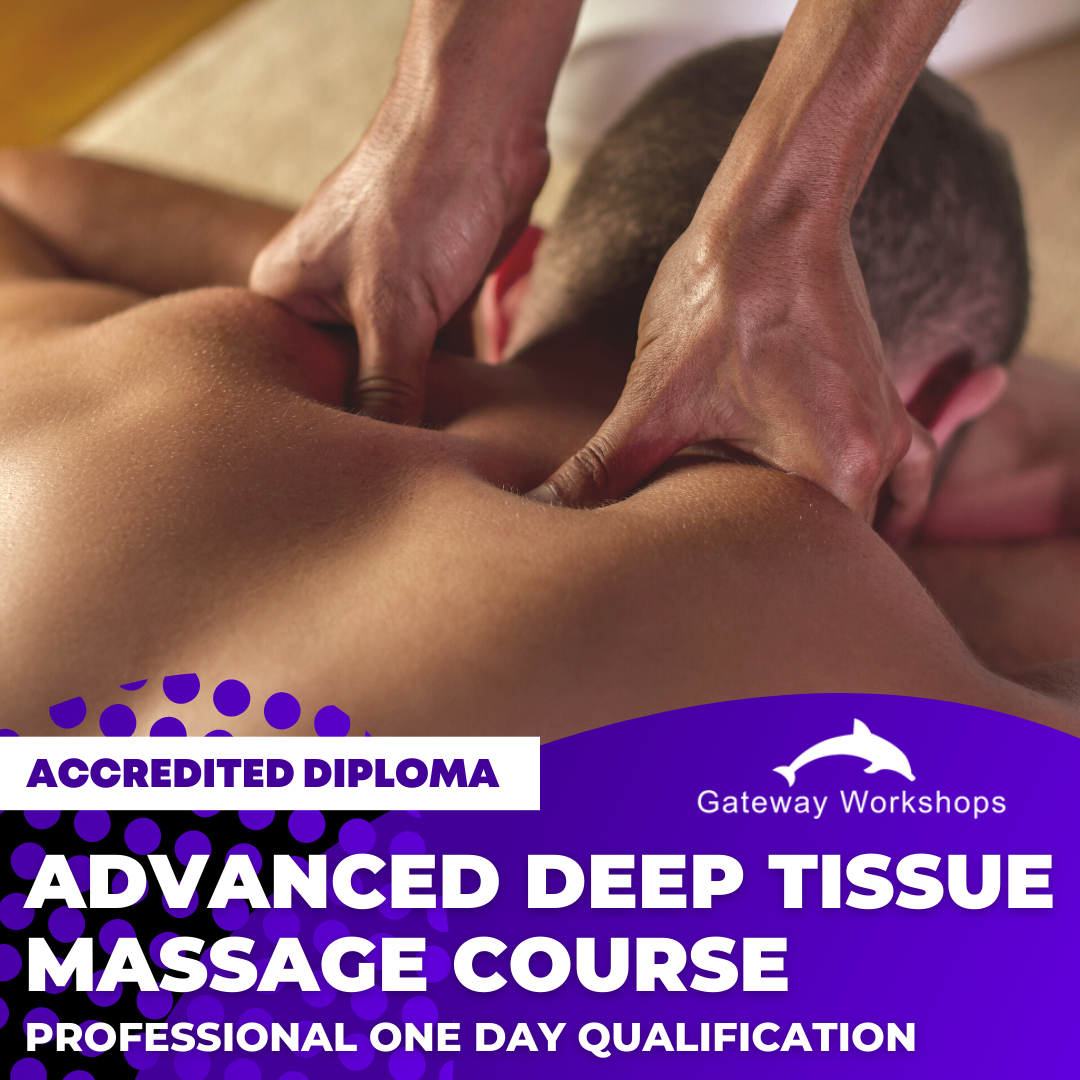Course Content
Course Aims:
This Course Will Teach You How to Apply Deep Tissue and Advanced Massage Techniques
Just 6 students per class offering one-to-one attention.
You will be able to charge more for therapies you offer your clients due to your extended knowledge base and the new skills gained after attending this course.
The Deep Muscles of the legs including Hamstrings, Iliotibial Band & Quads
Muscles of the lower leg such as the Gastrocnemius
Muscles of the Back
Muscles of the Arms and Shoulders
Feet
FREE online reference massage video access when you complete this course with us - our gift to you.
Outcomes
Participants will have a good understanding of:
Adopting correct working posture for deep tissue work and hands-free massage techniques
Observing client posture
How to develop their palpation skills
Recognising trigger points and how to apply the correct techniques for treating them
Utilising Neuromuscular Techniques and other advanced massage techniques to treat specific areas
How to perform a massage routine incorporating advanced massage techniques.
The course aims to help you develop advanced massage techniques, which will enable you to be more confident and specific in your treatments.
This gives you the potential to expand your client base as you will be able to offer more than just a relaxing massage.
You will be able to treat clients with muscular pain and tenderness and lack of flexibility with more confidence.
Our Advanced and Deep Tissue Massage Course Includes:
Deep Tissue and Advanced Massage Techniques - Neuromuscular Techniques
Palpation - Trigger Point - Hands-free techniques
Comprehensive manual included in the course fee
Unlike classic massage therapy, which is generally used for relaxation, this technique enables the therapist to focus on and treat specific problems.
The general public is increasingly requesting deeper and more advanced techniques due to their effectiveness in treating a host of specific issues, the most prevalent being back and shoulder pain.
What conditions is deep tissue massage used for?
Chronic pain -Limited mobility
Recovery from injuries (e.g. whiplash, falls, sports injury)
Repetitive strain injury, such as carpal tunnel syndrome
Postural problems - Osteoarthritis pain
Fibromyalgia - Muscle tension or spasm
Learn how to improve your techniques
Palpation
Careful examination of soft tissue to identify areas of possible damage is obviously very important for the therapist. Just prodding your finger into a tender spot does not give you much information, other than that it is probably tender!
We'll look at how to improve your palpation skills so that you may more easily identify changes in texture, tension or damage in soft tissue; therefore, you will have a better idea of how to treat the area.
Trigger points
Trigger points are highly irritable and localised areas within muscle fibres. These areas can vary from the size of a pea to a large lump. They are often tender and painful to touch and will frequently cause referred pain and discomfort.
Trigger points are tender points in the muscle fascia; these can be difficult to locate. The rationale behind using trigger point therapy is that it creates localised ischemia (lack or reduction of oxygen to the muscle tissue), which starves the trigger point of oxygen and nutrients needed to sustain contraction.
Neuro-muscular techniques (NMT) NMT can be employed to alleviate these areas and so reduce knots and adhesions. NMT is an extension of deep friction & pressure techniques; it is applied with thumbs, fingers, fists or elbows, and is a diagnostic palpatory tool designed to help assess and deal with chronic pain.
Hands-Free Massage
Hands-Free Massage techniques are a blend of Eastern and Western styles, ideal for all massage therapists and body-workers, whether recently qualified or experienced.
This course will teach you correct body position and working posture, helping to maximise the effectiveness of your massage, whilst minimising injuries. Sadly, we often see therapists having to give up work due to burnout, poor posture, backache and repetitive strain injuries.
As therapists, we need to look after ourselves as well as offer wonderful therapies to our clients; after all, our bodies are our tools of the trade.
Gateway look after you from the start and beyond your course. When you train with us, you are taught by our expert, passionate and caring tutors.
They also offer great aftercare; they are happy to help with any questions that you may have after your course.
Remember, we have an FAQ Section (Frequently Asked Questions) at the bottom of this page.
If you have any other questions, they can be found in that section - please scroll down under the dates further down this page.
Course Feedback
When you do a course with us, you will be asked for a review as we love to hear from our students.
Gateway Workshops is rated 5 out of 5 stars on Google, Trustpilot, Facebook and others, by thousands of students across the UK & Northern Ireland.
Here’s what they’re saying about this course…
⭐⭐⭐⭐⭐
"Amazing tutor, very detailed, patient and thorough. Felt like I learned so much in comparison to my years of training. Learned so many new moves that I cannot wait to incorporate moving forward. I will be back for my courses in the near future."
Click on the Green link below to read the reviews that have come in to us over the years, and when ready to view dates, simply click on the purple VIEW DATES button above.












